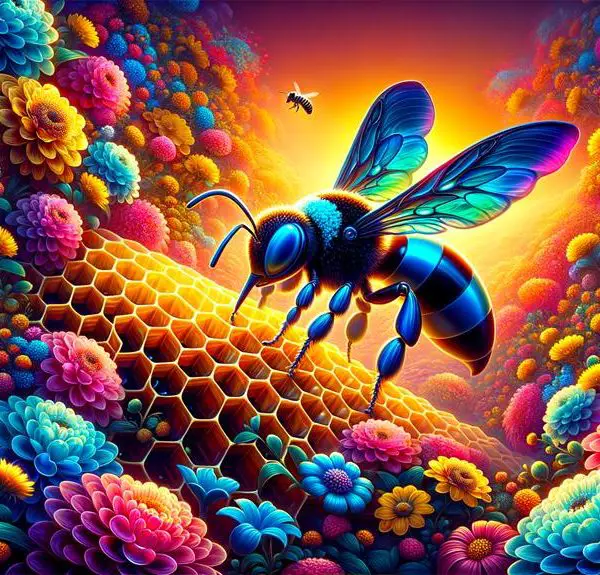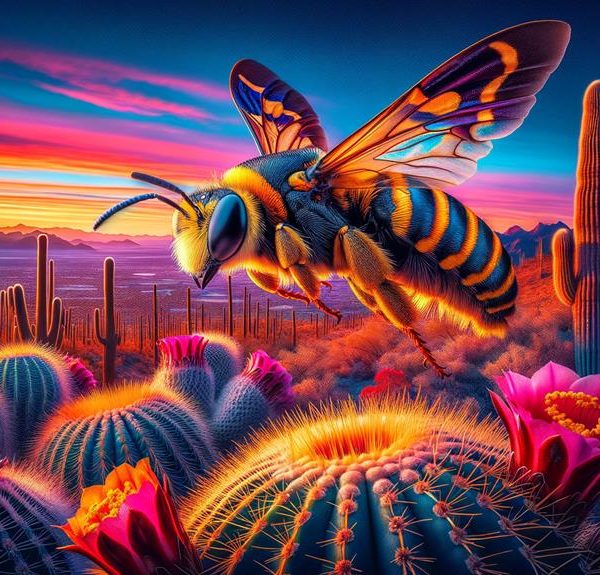Learn about the peculiar lifestyle of cuckoo bees and whether they have the ability to produce honey.
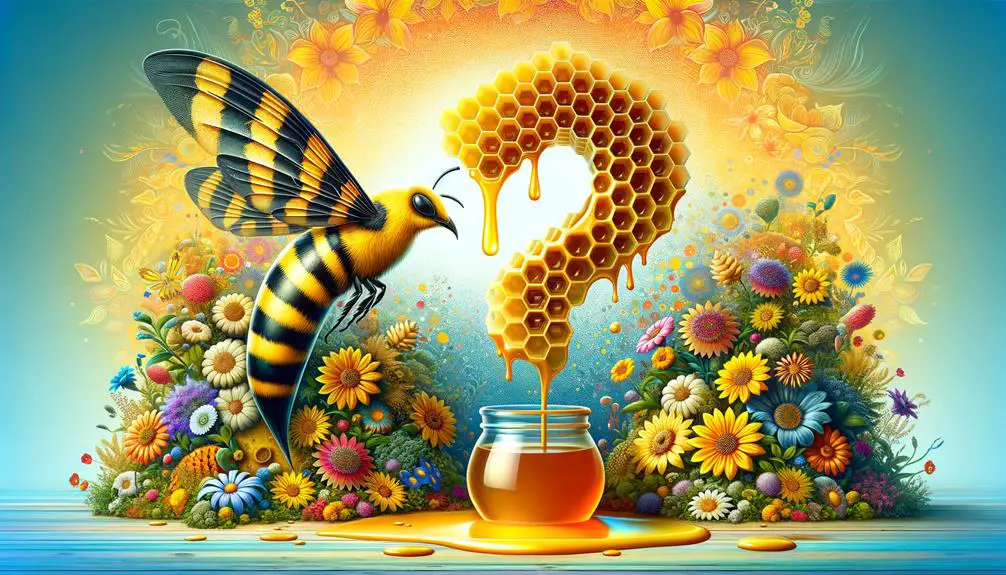
Do Cuckoo Bees Make Honey?
In the world of bees, honey isn't always the sweet reward at the end of a hard day's work. You know that honey bees gather nectar to make their coveted honey, but what about cuckoo bees? These intriguing insects lead a very different lifestyle, one that doesn't involve honey making.
Still, it's worth asking – can cuckoo bees produce honey if they wanted to? Let's explore this question and dive into the fascinating world of these unconventional bees.
Understanding Cuckoo Bees
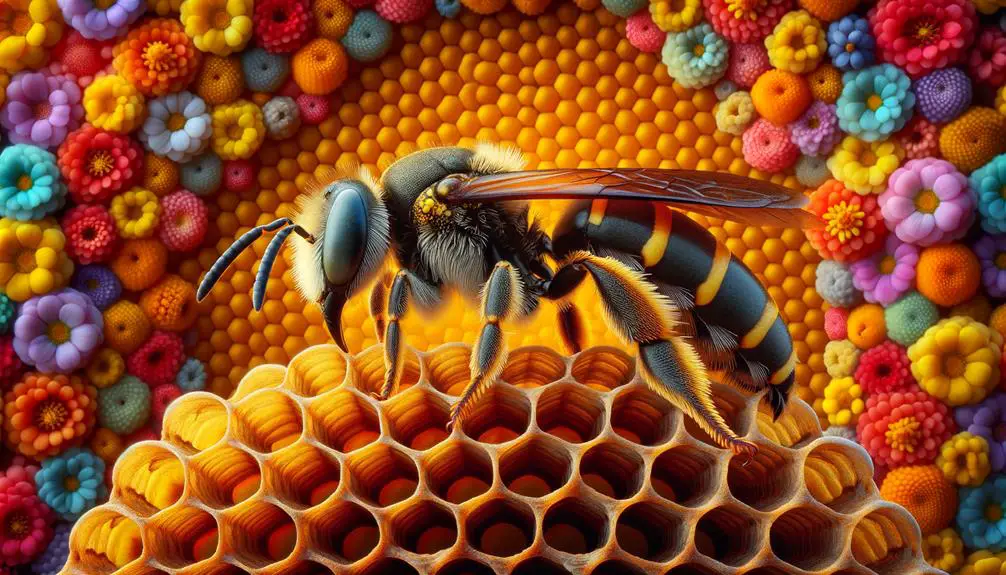
Ever wondered what makes cuckoo bees unique in the buzzing world of bees? These exceptional insects are part of the Apidae family, and their distinctiveness primarily lies in their parasitic lifestyle, which we'll delve deeper into in the next subtopic. But for now, let's focus on their physical characteristics and taxonomy.
Cuckoo bees, also known as cleptoparasitic bees, are typically hairless and have robust, heavily armored bodies. Their colors can range from metallic green to black, and they don't possess the pollen-carrying scopa that most bees do. This feature, or lack thereof, is directly linked to their lifestyle.
Taxonomically, cuckoo bees belong to several tribes and genera, making them a diverse group. Some of the most common genera include Nomada, Sphecodes, and Coelioxys. Each genus has its specific characteristics and host preferences, contributing to the rich biodiversity of cuckoo bees.
In terms of behavior, cuckoo bees are solitary creatures, unlike their eusocial counterparts. They don't form colonies, build nests, or collect pollen – peculiarities that set them apart from the general perception of 'bees.' Understanding these basics about cuckoo bees is crucial to comprehend their unique lifestyle and answer the question – 'Do cuckoo bees make honey?'
The Unique Lifestyle of Cuckoo Bees
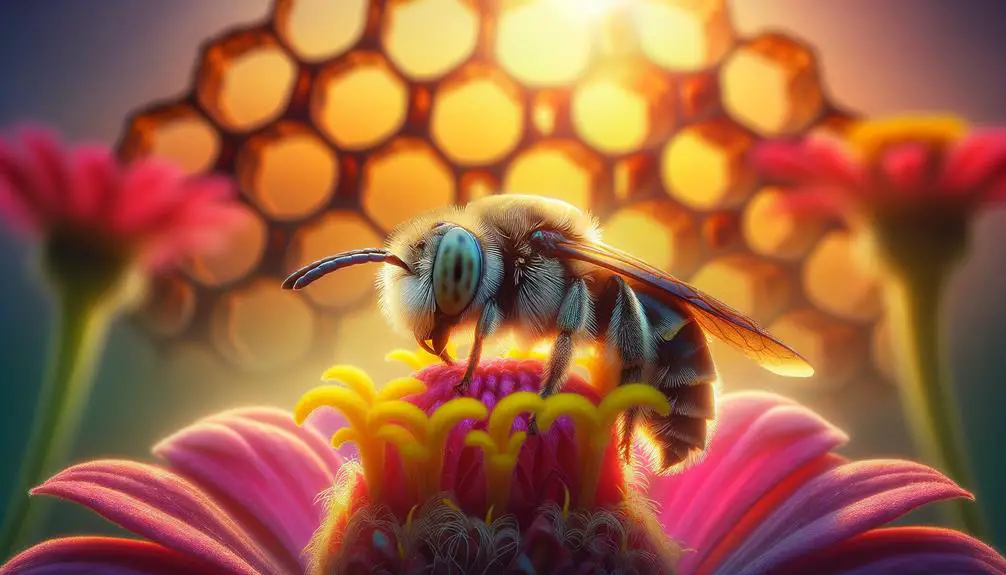
Uniquely, cuckoo bees lead a parasitic lifestyle, a trait you'll find fascinating. Unlike typical bees that collect pollen and nectar, cuckoo bees play the role of a parasite in the insect world. They're named after the similarly parasitic cuckoo bird and, believe it or not, they've adapted to live at the expense of other bee species.
Here's a quick rundown of their unusual lifestyle:
- Invasion: Female cuckoo bees invade the nests of other solitary bees, often when the host bee is away foraging.
- Egg Laying: The cuckoo bee lays her eggs in the host's nest, sometimes after eating the host's egg or larva.
- Parasitic Larvae: The cuckoo bee larvae hatch and consume the host's stored pollen and nectar, growing at the host's expense.
- Adulthood: The adult cuckoo bees emerge, ready to continue the cycle of parasitism.
It's a lifestyle that's far removed from the industrious image we usually have of bees. But in the diverse world of nature, even such seemingly ruthless strategies have their place.
Honey Production in Bees
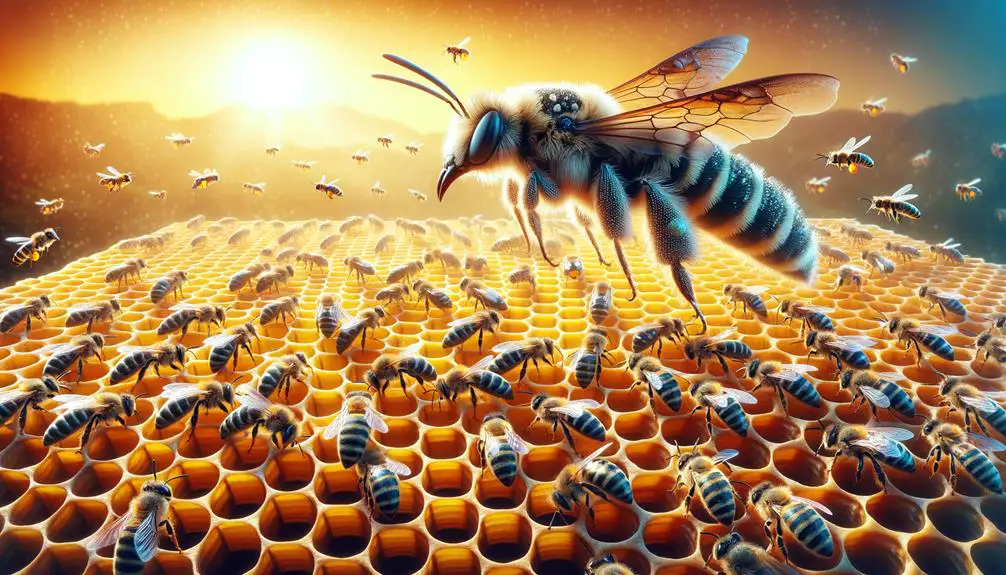
In the bustling world of bees, honey production plays a vital role, especially in the life cycle of honey bees. You've likely enjoyed the fruits of their labor, but have you ever wondered how this sweet substance is made?
Honey production begins with foraging bees collecting nectar from various flowers. Their bodies possess a special organ, called a honey stomach, where the nectar is temporarily stored. Enzymes within this organ break down complex sugars in the nectar into simpler ones, initiating the process of honey creation.
Once a foraging bee returns to the hive, it regurgitates the nectar to a house bee. The house bee then takes over, further breaking down the sugars and spreading the nectar into honeycomb cells. Here, the water content of the nectar evaporates, thickening into the honey you're familiar with. This process is sped up by the bees fanning their wings to circulate air throughout the hive.
The honey isn't just food for bees. It's a crucial energy source, especially during winter, and an essential ingredient in the royal jelly used to feed developing larvae. Understanding this intricate process can give you a newfound appreciation for the hard work that goes into every drop of honey.
Comparing Honey Bees and Cuckoo Bees
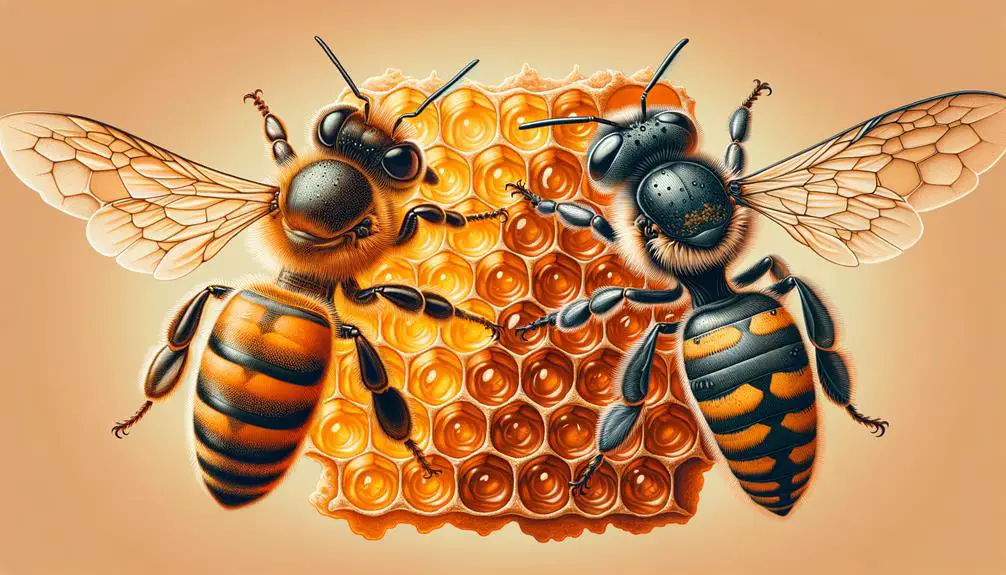
While you may be familiar with the honey-making process of honey bees, it's interesting to contrast this with the lifestyle of cuckoo bees, who don't produce honey at all. Both bees share the same environment, but there are striking differences in their behavior, morphology, and life cycles.
Here are four key differences between honey bees and cuckoo bees:
- Honey Production: Honey bees create honey by regurgitating and evaporating nectar collected from flowers. In contrast, cuckoo bees don't produce honey, as their lifestyle doesn't require it.
- Social Structure: Honey bees live in complex colonies with a queen, workers, and drones. However, cuckoo bees are solitary, laying their eggs in the nests of other bees and skipping the social structure altogether.
- Morphology: Honey bees have pollen baskets on their hind legs for carrying pollen back to the hive. Cuckoo bees, on the other hand, lack these structures, as they don't collect pollen.
- Life Cycle: Honey bees go through a complete metamorphosis from egg to adult. Cuckoo bees also undergo metamorphosis, but their larvae develop inside the host's nest, feeding on the host's pollen and nectar.
The Truth About Cuckoo Bees and Honey
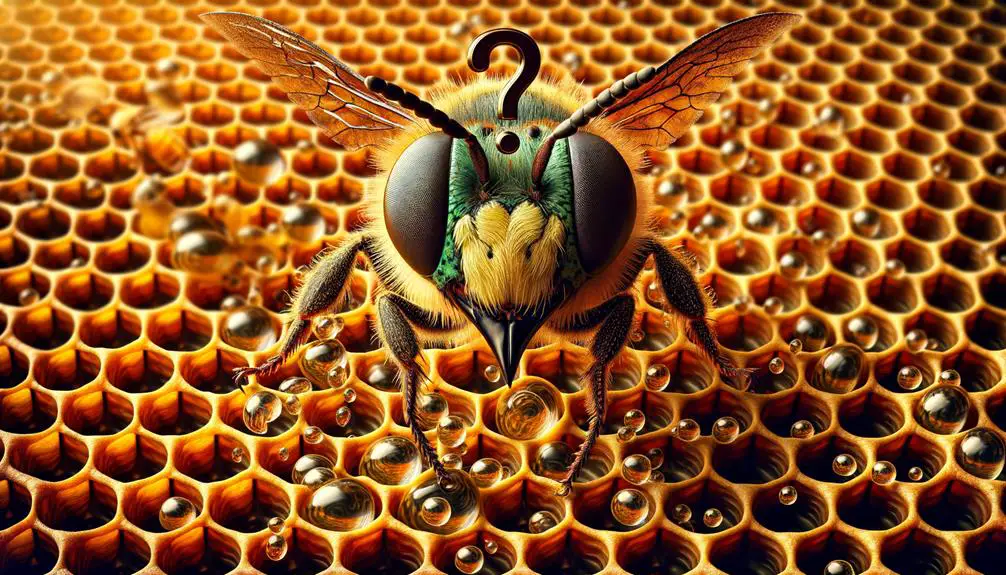
Contrary to what you might expect, cuckoo bees don't make honey at all. They're what scientists refer to as 'cleptoparasites,' meaning they steal the resources of other bees instead of collecting their own. This behavior is quite unique in the insect world and is the main reason why they don't produce honey.
Cuckoo bees lay their eggs in the nests of other bees, often honey bees. The cuckoo bee larvae then consume the host bee's pollen and nectar provisions, resources that would ordinarily be transformed into honey by honey bees. This parasitic lifestyle means cuckoo bees don't have to forage for food, nor do they need to build and maintain nests.
This lack of honey-making isn't due to an inability, but rather a lifestyle choice. Cuckoo bees have the same physical structures as honey bees that could allow them to produce honey. But why should they, when they can simply take what they need without the hard work? So, the next time you're enjoying a spoonful of honey, remember that not all bees are as industrious as honey bees. Some, like the cuckoo bee, have found a cunning and less labor-intensive way to survive.
Conclusion
So, do cuckoo bees make honey?
The answer is no. Unlike their honey bee counterparts, cuckoo bees don't produce honey. Their unique lifestyle involves invading other bee nests and laying their eggs.
They've no need to gather nectar or pollen, or to produce honey. While intriguing in their own right, when it comes to honey production, cuckoo bees simply don't have a role to play.

